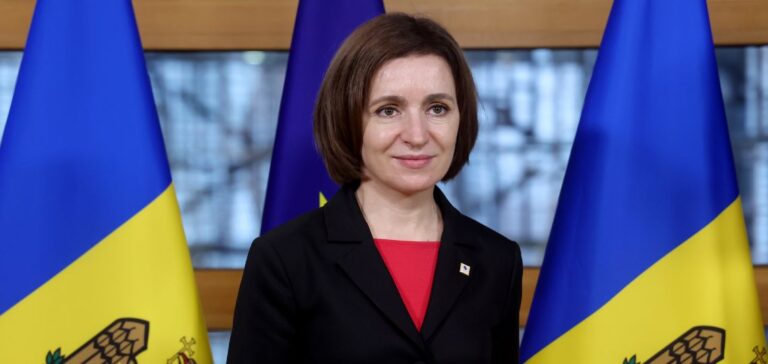On Wednesday, Moldova offered to pay $8.6 million in debt to Russian giant Gazprom, which promptly rejected the amount, almost a hundred times less than the $709 million claimed.
Moldova disputes its energy debt to Gazprom
The amount proposed by Moldova is based on an audit carried out by two international firms. This dispute over the debt owed by the Russian-Moldavian company Moldovagaz dates back to before the start of the Russian invasion of Ukraine, and stems from a sudden increase in tariffs decided by Moscow in 2021.
“The citizens of the Republic of Moldova do not have to bear the burden of non-existent debts to Gazprom,” Moldovan Prime Minister Dorin Recean said in a statement. “Following the external audit, we firmly reject the alleged debts,” he added.
Moldovagaz could cancel a large part of its debt due, in part, to a lack of documentation, according to Norwegian agency Wikborg Rein and UK agency Forensic Risk Alliance.Moldovogaz is 50% owned by Gazprom and 36.6% by the Moldovan government. In a statement posted on Telegram on Wednesday, Gazprom said that the audit findings “could in no way affect the amount and validity of the said debt”, insisting that Gazprom and Moldovagaz had confirmed them in “regularly signed documents”.
“Gazprom categorically disagrees with the Moldovan side’s assertions and intends to continue defending its rights by all possible means,” he added.
Between Russian Gas, Debt and Geopolitical Tensions
Moldavia, a former Soviet republic situated between Romania and Ukraine, used to receive Russian gas from Ukraine, via the pro-Russian separatist region of Transnistria. In October 2021, Chisinau and Gazprom extended their gas contract by five years after a bitter confrontation over rising gas prices. The negotiation protocol provided for Moldova to carry out an independent audit of Moldavagaz’s debts, which Moldavagaz must settle within five years.
The subsidiary Moldovagaz, 50% owned by Gazprom, disputed the legality of the audit in a press release, arguing that the protocol stipulated that it should coordinate the audit. Since the invasion of Ukraine, Gazprom has sharply reduced its deliveries, plunging Moldova into an energy slump. The pro-European government accuses Moscow of wanting to destabilize the country of 2.6 million inhabitants.
Why are we interested?
On the economic front, this dispute between Moldova and Gazprom over Moldovagaz’s debt raises major concerns. From a financial point of view, it is crucial to monitor this situation, as it could also have repercussions for Gazprom, a major energy company in Russia, and for relations between Moldova and Russia, two important players in the geopolitical context. Finally, from the point of view of the energy market, tensions surrounding gas deliveries to Moldova are likely to affect the country’s energy supply, with potential consequences for its citizens and economy.






















